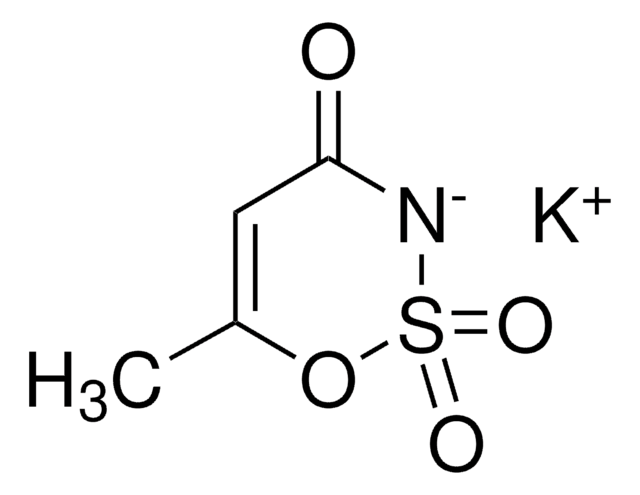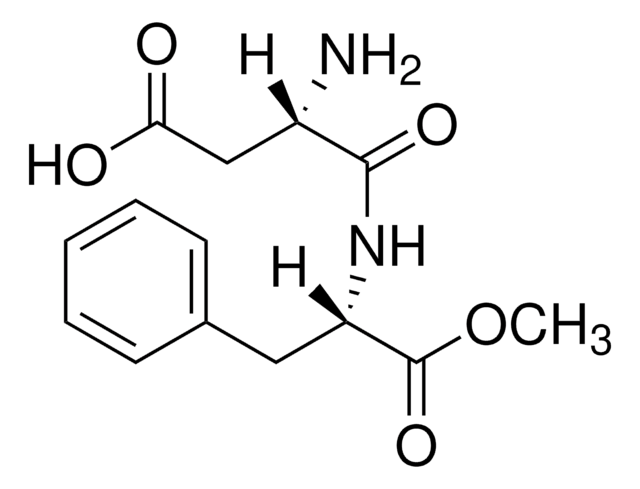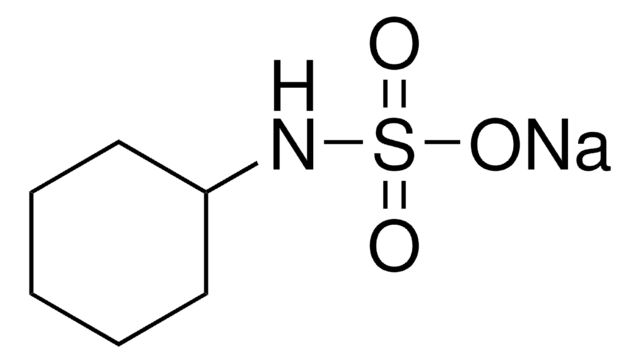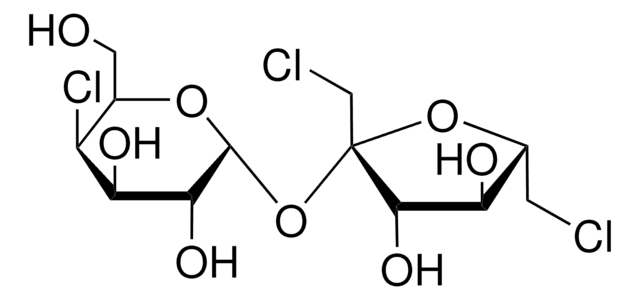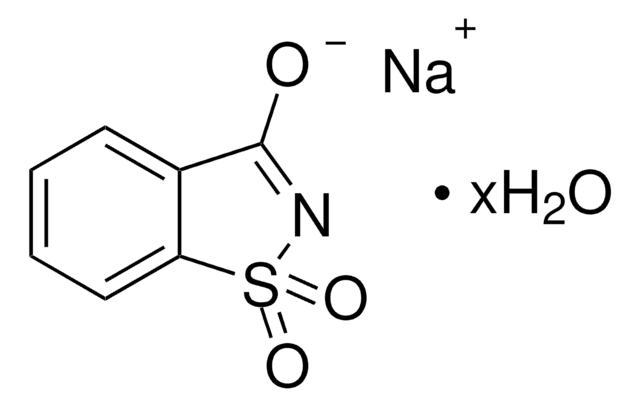A0070000
Acesulfame potassium
European Pharmacopoeia (EP) Reference Standard
Sinonimo/i:
Acesulfame K, 6-Methyl-1,2,3-oxathiazin-4(3H)-one 2,2-dioxide potassium salt
About This Item
Prodotti consigliati
Grado
pharmaceutical primary standard
Famiglia di API
acesulfame
Produttore/marchio commerciale
EDQM
applicazioni
pharmaceutical (small molecule)
Formato
neat
Temperatura di conservazione
2-8°C
Stringa SMILE
[K+].CC1=CC(=O)[N-]S(=O)(=O)O1
InChI
1S/C4H5NO4S.K/c1-3-2-4(6)5-10(7,8)9-3;/h2H,1H3,(H,5,6);/q;+1/p-1
WBZFUFAFFUEMEI-UHFFFAOYSA-M
Cerchi prodotti simili? Visita Guida al confronto tra prodotti
Descrizione generale
For further information and support please go to the website of the issuing Pharmacopoeia.
Applicazioni
Confezionamento
Altre note
Prodotti correlati
Codice della classe di stoccaggio
11 - Combustible Solids
Classe di pericolosità dell'acqua (WGK)
WGK 1
Punto d’infiammabilità (°F)
Not applicable
Punto d’infiammabilità (°C)
Not applicable
Scegli una delle versioni più recenti:
Certificati d'analisi (COA)
It looks like we've run into a problem, but you can still download Certificates of Analysis from our Documenti section.
Se ti serve aiuto, non esitare a contattarci Servizio Clienti
Possiedi già questo prodotto?
I documenti relativi ai prodotti acquistati recentemente sono disponibili nell’Archivio dei documenti.
I clienti hanno visto anche
Il team dei nostri ricercatori vanta grande esperienza in tutte le aree della ricerca quali Life Science, scienza dei materiali, sintesi chimica, cromatografia, discipline analitiche, ecc..
Contatta l'Assistenza Tecnica.